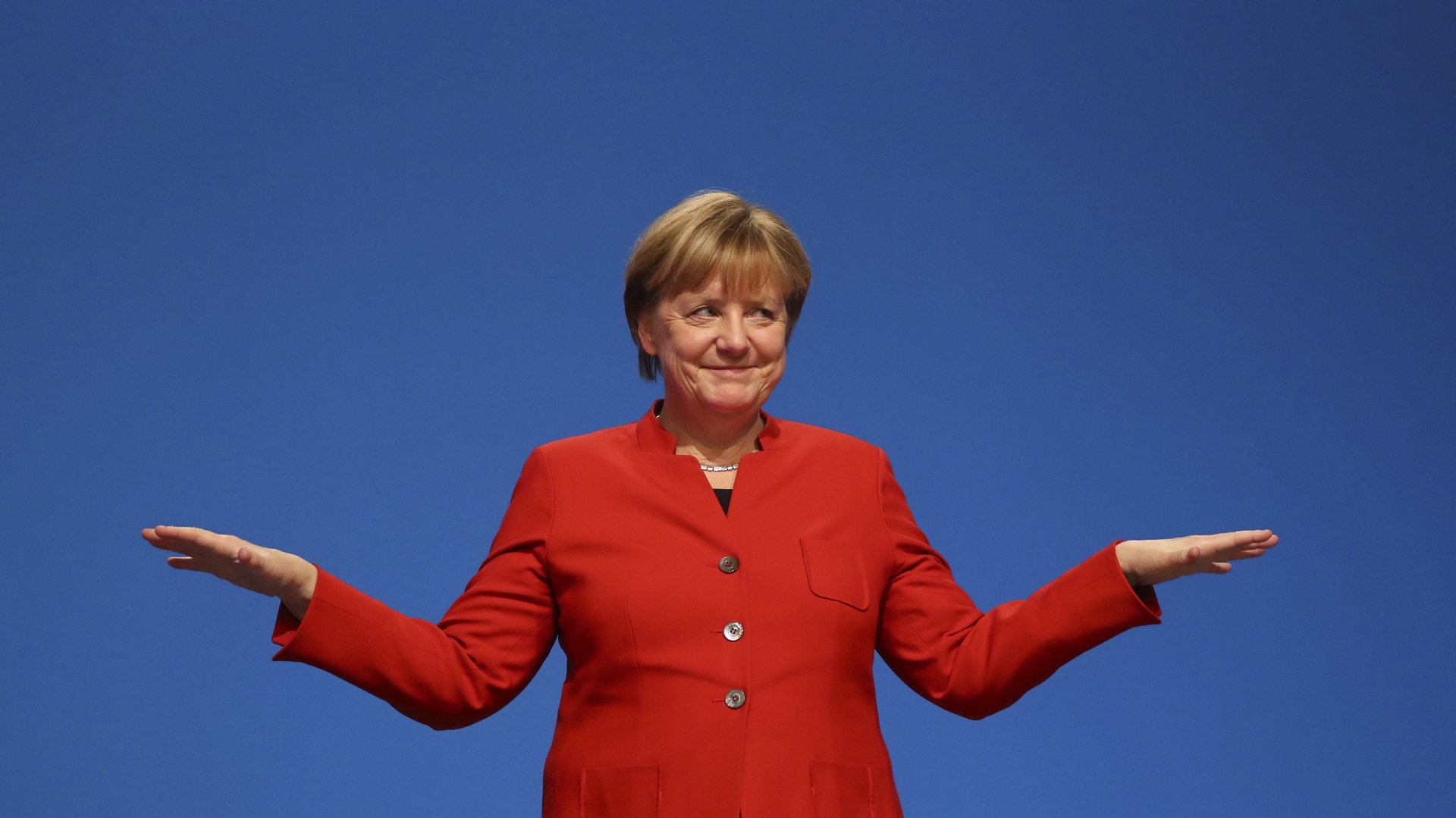Angela Merkel is proposing a burka ban in Germany
Angela Merkel, Germany’s liberal chancellor, wants a ban on burkas in Germany. She announced exactly that in launching her bid for re-election to a fourth term next year.


Angela Merkel, Germany’s liberal chancellor, wants a ban on burkas in Germany. She announced exactly that in launching her bid for re-election to a fourth term next year.
In a speech at her party’s convention, Merkel said she wants to ban the burka, the full veil worn by devout Muslim women, anywhere in public where it’s legally possible. ”Our law takes precedence over codes of honor, tribal or family rules, and over sharia law,”she explained (link in German). The proposed ban would apply to situations such as schools, universities or public jobs.
When the proposal was first introduced in August—just as France got into a pickle with its burkini ban—Germany’s interior minister Thomas de Maiziere explained it by saying that the burka did not belong “in our cosmopolitan country.” He said, ”Showing your face is essential for our communication, co-existence and social cohesion and that’s why we’re asking everyone to show their faces.”
Merkel’s proposed ban appears to be a political move to ensure her re-election next year. Her policy last year of welcoming in one million refugees, many of them from Syria, is one that “can, should and will not be repeated,” she has said. Polls suggest that the German people found the refugee influx difficult and a potential threat to their own culture. France, Belgium, Bulgaria, the town of Novara in Italy, Spain, Switzerland and, soon, the Netherlands enforce a ban on the full veil.
Banning the burka, however, seems a concession to Islamophobia by reinforcing a belief that there is something inherently suspicious in a Muslim veil. It also creates a paradox around women’s rights. Under the pretense of freeing women from the assumed restrictions of wearing a veil, it prescribes they cannot wear what they wish.